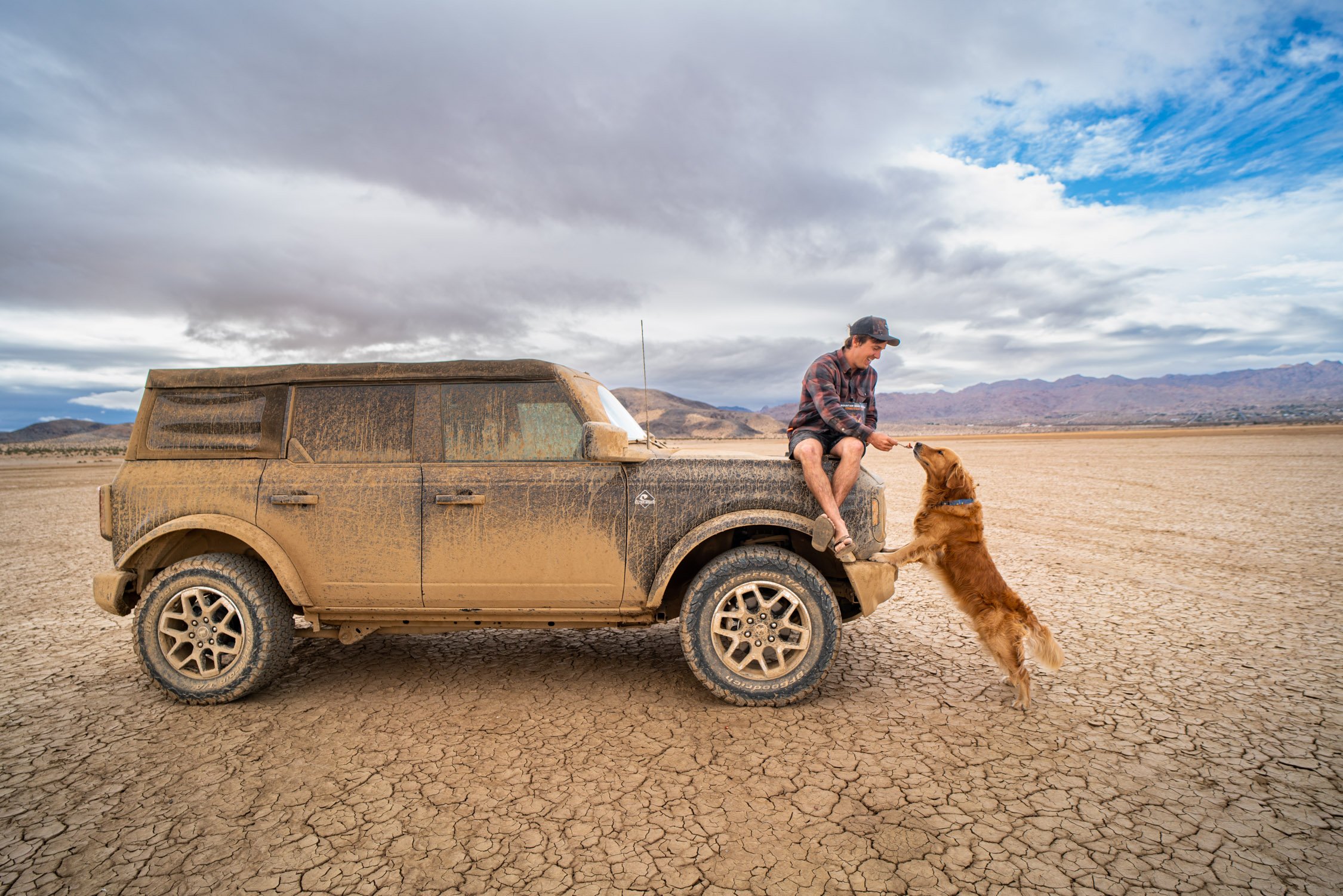How To Budget Your Next Road Trip So You Don't Feel Strapped At The Pump
Everyone hates that feeling of pulling out your wallet and timidly swiping your card thinking, "Can I afford this?" Don't let that be you on your next road trip. Embarking on a road trip is an exhilarating adventure, filled with the promise of scenic routes, new experiences, and unforgettable memories. However, the excitement can quickly turn to anxiety if you're constantly worried about overspending. Below, we'll explore essential tips and strategies to help you budget effectively for your road trip, ensuring a stress-free and enjoyable journey without breaking the bank.
When your best buddy asks for a bite to eat during your muddy road trip. Photo by Dalton Johnson
Budgeting Blunders:
One of the most common mistakes made by road trippers is overspending on food, activities, and accommodations. It's easy to get caught up in the moment and splurge on lavish meals or expensive attractions, only to regret it later when checking your bank account. To avoid this pitfall, it's crucial to set a realistic budget before you hit the road.
Setting a Realistic Budget:
The first step in effective road trip budgeting is to determine how much you can afford to spend overall. Take into account your transportation costs, such as gas and tolls, as well as accommodations, food, activities, and any unexpected expenses that may arise. Be honest with yourself about what you can comfortably afford without putting a strain on your finances.
Research Affordable Options:
Once you have a budget in mind, research affordable options for dining, accommodations, and activities along your route. Look for budget-friendly restaurants that offer delicious meals at reasonable prices. Consider staying at budget hotels, motels, or campgrounds instead of luxury resorts to save on lodging costs. Additionally, look for discounts, deals, and coupons for attractions or activities you plan to visit.
Track Your Expenses:
During your road trip, keep track of your expenses diligently. Use a budgeting app or a simple notebook to record your spending on gas, meals, accommodations, and activities. By monitoring your expenses in real-time, you'll have a clear picture of where your money is going and can adjust your spending accordingly to stay within budget.
Allocate Extra Cash for Spontaneous Adventures:
While it's important to stick to your budget, don't forget to allocate some extra cash for spontaneous adventures or unexpected opportunities that may arise during your trip. Whether it's stumbling upon a charming roadside diner, deciding to take a detour to explore a scenic overlook for sunset photos, or participating in a spontaneous activity, having a bit of flexibility in your budget allows you to seize these memorable moments without financial stress.
Tips for Effective Road Trip Budgeting:
Plan your route and stops in advance to estimate fuel costs and avoid unnecessary detours.
Pack snacks and drinks to reduce dining expenses on the road.
Use loyalty programs or membership discounts for accommodations and attractions.
Consider alternative accommodations like Airbnb or camping to save on lodging costs.
Limit impulse purchases and prioritize experiences that align with your interests and budget.
Playing in the dirt while on a road trip. Photo by Dalton Johnson
Budgeting for a road trip doesn't have to be daunting. With careful planning, research, and monitoring of expenses, you can enjoy a memorable journey without overspending. Remember to set a realistic budget, research affordable options, track your expenses, and allocate extra cash for spontaneity. By following these tips, you'll make the most of your road trip while staying within your financial means











